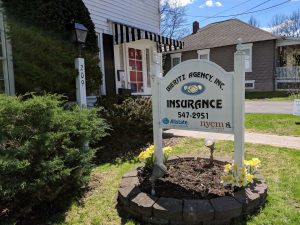 Just like a fine wine, some of our greatest material possessions gain value over time. This is true of exceptional antique automobiles. Your antique automobile must be protected in all ways, from suitable shelter to ample insurance coverage.
Just like a fine wine, some of our greatest material possessions gain value over time. This is true of exceptional antique automobiles. Your antique automobile must be protected in all ways, from suitable shelter to ample insurance coverage.
When insuring an antique auto, there are many considerations to make. Equip yourself by exploring the specific aspects of selecting antique automobile insurance.
Understand the Terminology
The first step is understanding the vocabulary used when discussing collectible antique vehicles. What is the difference between a classic, vintage and antique car?
It is important to understand that there is not a single definition that is accepted in all situations. Many state Departments of Motor Vehicles (DMV’s), insurance companies and distinctive car clubs classify the terms differently. However, there are widely-accepted distinctions between the categories that should be known:
- Antique: The Antique Automobile Club of America denotes an antique automobile as one being 50 years old or older. (Some organizations begin the distinction at 45). This classification includes the Veteran Era, the Brass Era, and the Vintage Era.
- Classic: The Classic Car Club of America designates cars between 30-49 years old as classic cars.
- Historic: Automobiles may be placed in the category of “historic” or “historical vehicle” if 25 years or older or 15 years or older and no longer manufactured.
- Vintage: An automobile may receive this title if it was manufactured between the years 1919 and 1930.
Understand the Qualifications
Does age alone qualify a vehicle for these classifications of distinction? Absolutely not. If this were true, every junkyard would be filled with antique and classic cars. To achieve the designation of antique, classic or historic, insurance companies are looking for these additional qualifications:
- Limited Use: The vehicle cannot be used for everyday commuting or for running errands or other common purposes. The vehicle is driven rarely and for specific reasons. You may be required to show proof of ownership of a primary car for everyday use.
- Properly sheltered: Many insurance policies require you to show that the car is adequately stored. The garage or building must protect your vehicle from the elements and the likelihood of damage or theft.
- Increase of value over time: Unlike the majority of automobiles that depreciate in value due to customary use and wear, a distinctive antique or classic car will actually appreciate over the years. This vehicle is an investment worthy of the highest levels of protection.
Understand the Process
Once you have educated yourself on the terminology and qualifications for antique vehicles, you are ready to make a wise decision in insuring your automobile. Follow these steps to achieve maximum insurance coverage:
- Know your own priorities and goals:
Review your dreams and objectives in investing in an antique car. Do you want to enjoy the look and feel of your car for the pleasure of yourself and your family? Would you like to take the car for short rides and share it with friends? Are car shows and travel in your future? Have a clear vision of what you want from your experience in determining your insurance needs. - Select an insurance company that understands antique cars:
Not all insurance companies are alike. Some companies have little knowledge or experience in protecting the specialized needs of car collectors or antique car enthusiasts. Shop for companies that have a great record in classic and antique cars (like us, Bieritz Insurance!). - Find someone who can answer your questions:
Now that you know what you need and have narrowed your field of companies, find one that is willing to discuss all of your questions. Is the company capable of raising the coverage as the value increases? Are there members on staff that have a specialized knowledge of collectible vehicles who can address situations as they arise? Is there an adequate allowance for unique towing and repair needs?
Does the policy being offered allow for the number of car shows and travel that you will require? Coverage can vary widely on allowances for travel to car shows and other venues. These qualifications must be explicitly stated within the policy. Exclusions can be made that would preclude you from traveling to these shows, or may require towing to do so.
You want to fully enjoy the privilege and pleasure of owning an antique vehicle. Educating yourself goes a long way in selecting the insurance coverage that is right for you.
Don’t leave your specialized insurance needs to anyone but the professionals. We at Bieritz stand ready to share our extensive knowledge and insurance options with you. We will help you get the most out of your investment. Contact us today at our website at bieritzinsurance.com/contact-us.

